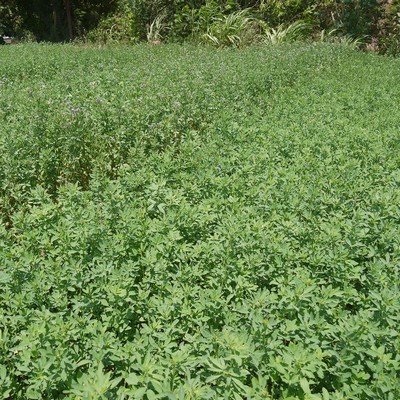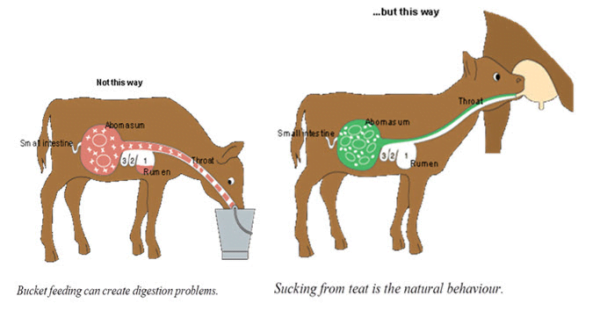Lucerne, also known as alfalfa, is a perennial legume that is grown for its forage and hay. The history of lucerne farming dates back to ancient times. It is believed that lucerne was first domesticated in Central Asia, and it was later introduced to other parts of the world, including Europe, Africa, and Asia. Lucerne farming became more widespread in the Middle Ages, and it was an important crop during the Crusades. Lucerne was also introduced to the Americas by European settlers in the 16th century. Lucerne farming has continued…
Category: Feeding Strategy
Calf rearing and Management
A good social life in good health – a goal for young animals Introduction The aim of calf rearing is to produce strong, healthy, well grown calves that will continue to develop steadily after weaning. The calf rearing period covers the time from birth to 12 weeks of age. It is an important goal in organic farming to give all animals good living conditions, also the young animals – and maybe in particular the young ones: it is a precondition for becoming a good milking cow that the cow had a good life and…
Hay Making| Composition, Types, Process, Storing
Introduction Hay making is the process of turning green, perishable forage into a product that can be safely stored and easily transported without danger of spoilage, while keeping nutrient loss to a minimum. This involves reducing its moisture content from 70 – 90% to 20 – 25% or less Techniques for natural pasture, sown pasture and crops specifically cultivated for conservation at three levels of technology are considered: manual haymaking; simple mechanization with draught animal power or small tractors; and fully mechanized systems. It is, of course, possible to have…
Pasture and Fodder Management | Production
Introduction Pasture are plants (such as grass) grown for the feeding especially of grazing animals or grass or similar plants suitable for animals such as cows and sheep to eat, or an area of land covered in this: The availability of fodder is one of the limiting factors in animal husbandry. Organic husbandry should be mainly based on the fodder produced on the farm itself. As is the case with humans, there is a direct link between the food and the health of the animals. Food requirements of animals If farm animals are to be productive (milk, eggs, meat etc.), it is important that they get suitable food in…





